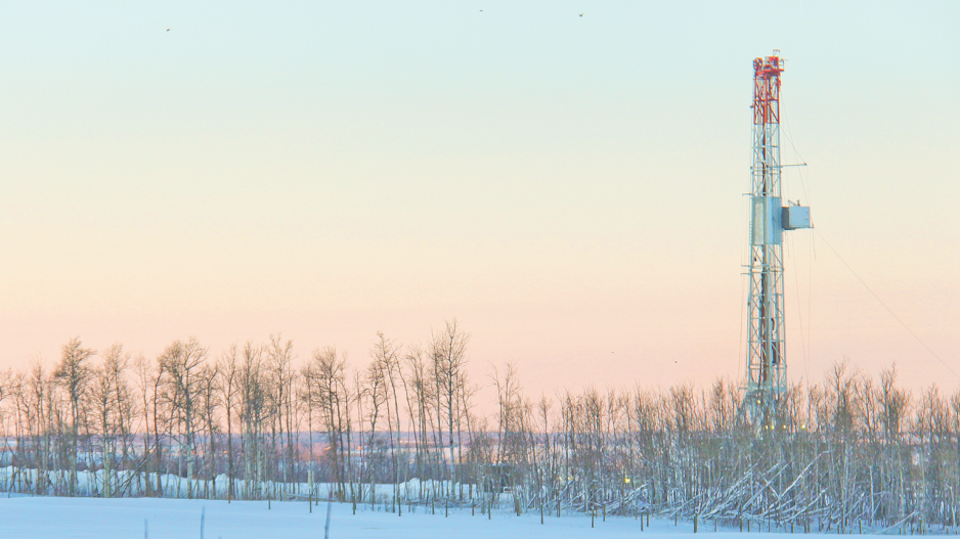War in the Ukraine and a redrawing of the Iron Curtain around Russia may eventually ruin the country’s economy, but the most immediate impacts of the West’s economic war with the Kremlin are being felt in the West, especially Europe, in the form of crippling energy prices.
If Vancouverites thought paying $2.09 per litre for gasoline last week was bad, they should brace for even higher prices to come and be thankful they aren’t paying European prices for gasoline, diesel and natural gas.
At least Canada has an abundance of oil and natural gas; many European countries don’t. And it could be producing and exporting a lot more to allies who need it now, had it not squandered opportunities to grow its oil and liquefied natural gas (LNG) industries, analysts say.
“I think energy security is one of the main planks of this,” said Jonathan Berkshire Miller, an international affairs expert and senior fellow at the Macdonald-Laurier Institute.
“This moment should be a clarifying moment for countries like Canada. Not only does it have a national security imperative in times like this, but I think we’re clearly missing the boat on some of the economic benefits.”
Even if the war in Ukraine were to end soon, Russia’s isolation could result in some permanent shifts in trade, especially in Europe, but in Asia as well.
Russia is the world’s third largest producer of oil and second largest producer of natural gas and potash. It’s also the world’s third largest producer of wheat and nickel. It supplies Europe with 40 per cent of its natural gas and 25 per cent of its oil. And it is again being forced behind the Iron Curtain that once separated the Soviet Union and the West.
“That economy, I think, is in the process of essentially being removed from the world trading regime,” André Powell, managing partner at Deetken Insight, said of Russia and the unprecedented suite of trade and financial sanctions being taken by western nations and others against it.
“I think the sentiment towards Russia has shifted. It probably has shifted permanently, at least for the foreseeable future.
“This is a game-changing moment in history. The impact of Russia on commodity markets is likely to be deep and sustained. I think that’s going to play into Canadian producers’ thinking and the number of projects being developed. Essentially, terms of trade move in Canada’s favour, and that’s probably true of other big commodity producers as well – Australia for example.”
Miller agreed: “I think that this is somewhat permanent, and that has some profound implications for energy security and for commodity prices too.”
Vladimir Putin’s war in Ukraine has roiled energy and commodity markets. Last week, the Joe Biden administration announced it would ban imports of Russian oil and petroleum products, which account for about seven per cent of American petroleum imports.
Last week, Brent crude, the European benchmark, spiked to US$130 per barrel and West Texas Intermediate hit a 13-year high. Western Canadian Select hit US$105 per barrel on March 8. Gasoline and diesel prices are soaring around the globe, adding to inflation.
Dutch TTF natural gas, which had already soared from US$38.09 to US$61.75 MMBtu in a single week, spiked another US$10.78 in a single day (March 7) to US$72.53 MMBtu, after Russia warned it may cut Europe off from its natural gas. (For a comparison, North American natural gas prices last week were at US$4.80 per MMBtu.) Japan-Korea LNG spot prices roughly doubled between February 22 and March 8.
Energy prices were already hitting some crushing highs in Europe in the latter part of 2021, thanks in part to low wind energy production and a shortage of natural gas reserves. War and sanctions against Russia have added fuel to the fire.
“It’s a perfect storm, where you have the increase in prices, and while we’re suffering from it on one side as a consumer, we’re not benefiting a lot as a potential exporter,” Miller said.
Canada could have been in a position to supply Europe with natural gas, in the form of LNG, but lost the race to build new projects to the U.S., which is now a major natural gas exporter.
Only one large LNG project is currently being built in Canada – LNG Canada in B.C. – while proposals for LNG projects in Eastern Canada have stalled or been rejected.
“We’re not able to really benefit because our exports are not punching at what they could be,” Miller said. “This is a moment that I think a lot of folks have been talking about for years. It’s been just so difficult for us – whether it’s LNG, etcetera – to get that out and shipped out to Asia, even getting it shipped out on the Atlantic side to our European friends.”
Powell said Canada needs an energy policy that promotes a Canadian LNG industry.
“Ongoing global energy shortages and insecurity present not only an economic opportunity for Canada, but an opportunity for our country to assist friends and allies around the world by providing a new and more secure supply of cleaner energy,” he said.
If oil prices remain about US$100 per barrel, it will eventually spur oil producers to increase production, but that will take time.
“If this is a sustained circumstance of well north of $100 a barrel, you’re going to see North American production climb again,” Powell said.
Whether Canada capitalizes on the opportunity remains to be seen. Alberta’s oil industry is constrained by limited pipeline capacity. At the very least, an increased demand for oil that isn’t Russian is probably good news for the Justin Trudeau government’s Trans Mountain pipeline expansion project, which is now expected to cost a whopping $21 billion.
“It’s certainly looking like that pipeline is going to be utilized,” Powell said. “In at least the medium term, I think there’s going to be plenty of use for that pipeline, given the developments that we’re seeing around the world right now.”





